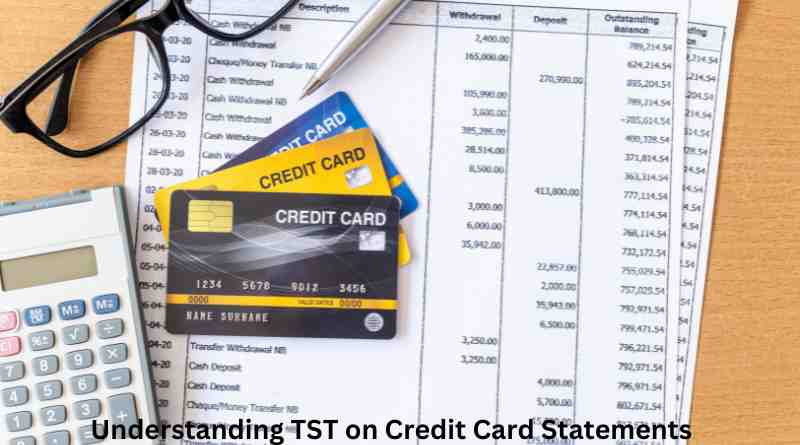Understanding TST on Credit Card Statements
Have you ever glanced at your credit card statement and noticed a cryptic charge labeled “TST”? Perhaps you’ve found yourself scratching your head, wondering what it means and if it’s legitimate. Fear not, as we delve into the depths of credit card statements to demystify the enigmatic TST.
Deciphering TST
TST is a common abbreviation used by merchants and vendors on credit card statements. It stands for “Transaction Settled Today,” indicating that a particular transaction was settled on the same day it was made. This designation is often used in the banking and financial industry to provide transparency regarding transaction processing times.
The Process Behind TST
When you make a purchase using your credit card, the transaction undergoes a series of steps before it appears on your statement. After you swipe or insert your card, the merchant’s payment processor sends the transaction details to your card issuer for authorization. Once authorized, the transaction is considered pending until it is settled.
Settlement typically occurs at the end of the business day or within a specified timeframe determined by the merchant’s acquiring bank. During this process, funds are transferred from the cardholder’s account to the merchant’s account to complete the transaction.
Why TST Appears on Statements
TST serves as a notification to cardholders that a particular transaction has been successfully settled. It provides clarity regarding the timing of when funds were transferred and the transaction was finalized. This information can be useful for tracking expenses and reconciling accounts.
Verifying TST Charges
While TST is a legitimate designation used by merchants and payment processors, it’s essential to verify each transaction listed on your credit card statement. Occasionally, fraudulent charges may attempt to conceal themselves using generic descriptors like TST. To ensure the validity of TST* charges, cross-reference them with your receipts and online history. If you encounter ay unfamiliar or unauthorized transactions, promptly notify your card issuer to investigate further.
Common Instances of TST Charges
TST may appear on your credit card statement in various contexts, including:
- Retail Purchases: When you make purchases at brick-and-mortar stores or online retailers, TST may signify that the transaction has been settled.
- Subscription Services: If you subscribe to monthly or recurring services, such as streaming platforms or subscription boxes, TST may indicate the settlement of subscription fees.
- Restaurant Transactions: After dining out or ordering food delivery, TST may appear on your statement to signify the settlement of your restaurant bill.
Conclusion
In conclusion, TST on credit card statements stands for “Transaction Settled Today.” It represents the completion of a transaction, indicating that funds have been transferred from the cardholder’s account to the merchant’s account on the same day the transaction was initiated. While TST is a legitimate designation, it’s essential to review your statements regularly and verify all charges to detect any potential discrepancies or fraudulent activity. By understanding the meaning behind TST, you can navigate your credit card statements with confidence and financial awareness.
Frequently Asked Questions About TST on Credit Card Statements
- What does TST stand for on my credit card statement?
TST is an abbreviation for “Transaction Settled Today.” It indicates that a particular transaction has been successfully settled on the same day it was initiated.
- Is TST a legitimate designation on credit card statements?
Yes, TST is a legitimate designation used by merchants and payment processors to signify the completion of a transaction. It provides transparency regarding the timing of when funds were transferred and the transaction was finalized.
- Why does TST appear on my credit card statement instead of the merchant’s name?
TST is often used as a generic descriptor by merchants and payment processors, particularly in cases where the merchant’s name may not be readily recognizable or where there is a need for a standardized designation for transactions settled on the same day.
- Can TST charges be fraudulent?
While TST itself is not inherently fraudulent, it’s essential to verify each transaction listed on your credit card statement. Occasionally, fraudulent charges may attempt to disguise themselves using generic descriptors like TST. Always cross-reference TST charges with your receipts and online purchase history to ensure their validity.
- How can I track and reconcile TST charges with my expenses?
To track and reconcile TST charges with your expenses, regularly review your credit card statements and keep detailed records of your transactions. Utilize online banking tools and mobile apps provided by your card issuer to monitor your account activity in real-time. If you encounter any discrepancies or unauthorized transactions, promptly notify your card issuer to address the issue.
Read also: check














Post Comment